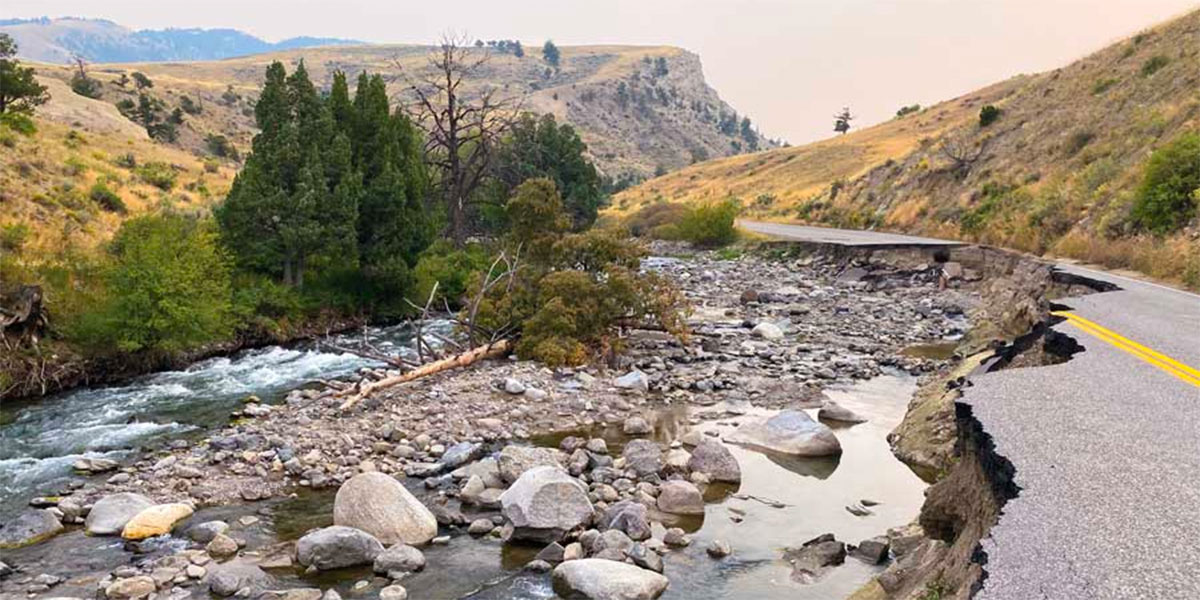At Yellowstone, Baylor prof shifts from vacation to vocation after national park flooding

Last June, Dr. Ryan McManamay and his family planned to celebrate his parents’ 50th anniversary at Yellowstone National Park. Their plans were changed, however, by historic flooding in the park, which washed out portions of the park’s main road and forced a shutdown that impacted every surrounding community. For McManamay, the park’s closure wasn’t an inconvenience — it was a call to action.
The towns surrounding Yellowstone, all of which rely on tourism, were suddenly cut off from the visitors who keep the towns’ businesses afloat. For example, consider Gardiner, Mont. — the town where the McManamays had planned to stay. The town of 900 serves over 1 million visitors a year in its restaurants, hotels, gas stations and more. For McManamay, a Baylor environmental science professor, this was a real-life case study with people who needed help.
McManamay earned a rapid grant from the National Science Foundation (NSF) to survey the owners of nearly 250 businesses in Gardiner and other surrounding communities. He, environmental science colleague Dr. Ben Ryan, and a team of students spent several days last summer embedded in those communities. Moved by the resilience and grit of the people he met, McManamay has spent the last year working to better understand community dependence on natural systems, with a focus on seeing those systems as critical infrastructure.
While roads through a park are not currently considered critical infrastructure, the data collected through the project in Gardiner and other gateway communities could help others view natural parks and resources through a new lens. That work is already being put to use by the Economic Development Agency, which is using the survey to determine the level of federal support needed for the region.
“We depend on natural assets in so many important ways, and Yellowstone is just one example of how these areas provide for our society,” says McManamay. “We need to be ready to fix these issues quickly because so many people depend on them. (A project like this) is a reason why I’m glad to be at Baylor. There are so many examples of faculty motivated by an opportunity to serve. It’s an outpouring of our Christian faith and the mission of this university, to help people — it’s a drive here to share the love of Christ.”
Sic ’em, Dr. McManamay!
[Learn more about McManamay’s work and Yellowstone in this Spring 2023 Baylor Magazine feature.]

